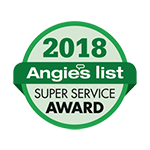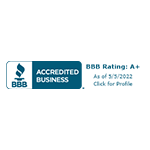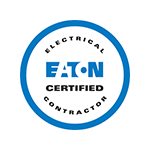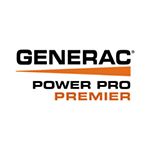You should schedule a Q&A, fact-finding consultation before ordering a Generac generator. After all, generators aren’t purchases to be made lightly since they are significant investments. First, schedule a time when all the decision makers are home so that everyone is informed and on the same page regarding all the questions, answers, and specs.
After your consultation, you will get a proposal that lists your good, better, and best generator options. You’ll also be privy to what accessories you will need and how to plan for your generator’s maintenance.
What Type of Generator Is Best for Your Home?
You will be asked why you want to purchase a standby generator as opposed to a portable generator and learn the pros and cons of each.
One significant difference is that a standby generator can run up to 40+ hours without refueling. A portable generator at full power may give you just 5 hours. Unless you enjoy standing outside during a dark, stormy night, extra run time is a plus.
Portable generators can only power parts of your home at once, whereas a standby generator can keep your entire home lit, making your family feel safe and secure against elements out of their control. You may want to factor those issues into your investment considerations.
Be prepared with a list of the appliances and electrical loads that you’ll want your generator to power during a brownout or a blackout. For instance, a portable generator handles about a 20 amp single load, while a standby generator can handle 100 amps. A typical electric circuit is about 15 amps for comparison.
Generac has an online calculator that can give you a selection of generators to discuss with your dealer. Just plug in your zip and your home’s square footage, check off your power needs, and submit for a customized list of generators.
What Items Do You Want Backed Up?
Whether you discuss your needs first with your consultant or input them into Generac’s online calculator, think about what essentials, appliances, and extras that you want backed up. Essentials include your sump pump, well, central air, furnace, and refrigerator.
Other appliances to consider are your dishwasher, stove, and garage door. Don’t forget the extras like your computer, security system, and WiFi. You need to figure out which ones are indispensable to you during times when your electric goes out. Even more important are families who rely on electricity for health reasons, like an electric bed or ventilator.
Lastly, there are regulations regarding where standby generators can be located. Portable generators can simply be kept outside and moved around. Standby generators are stationary. As such, standby generators become part of your home and must be permitted before installation.
Your dealer will go over those regulations with you and advise you of the locations where your generator can legally and safely be placed.
For instance, your generator cannot be located less than 18 inches from your home and cannot be blocking any egress routes, windows, or doors. Most importantly, you don’t want any fresh air that enters your home compromised by the generator.
You will also need to consider any homeowner association rules or local community laws that may hinder the process of your generator’s installation, like any special association bylaws or miscellaneous city permits.
How Can You Learn More?
Our staff at Oak Electric values family and security. Let us help you be prepared for any contingency. Our generators provide you with the control, safety, and convenience you want and need when the power goes out. Schedule a consultation with us today for peace of mind tomorrow.


















